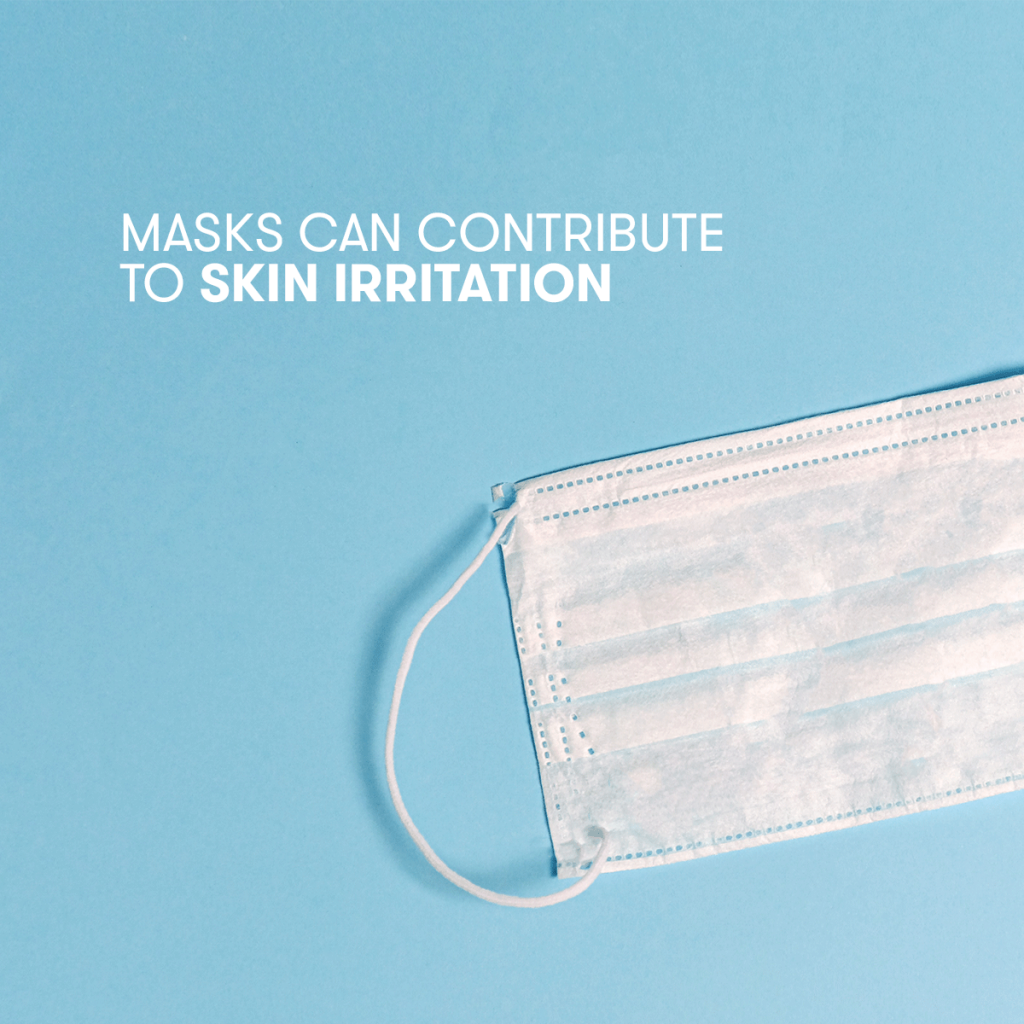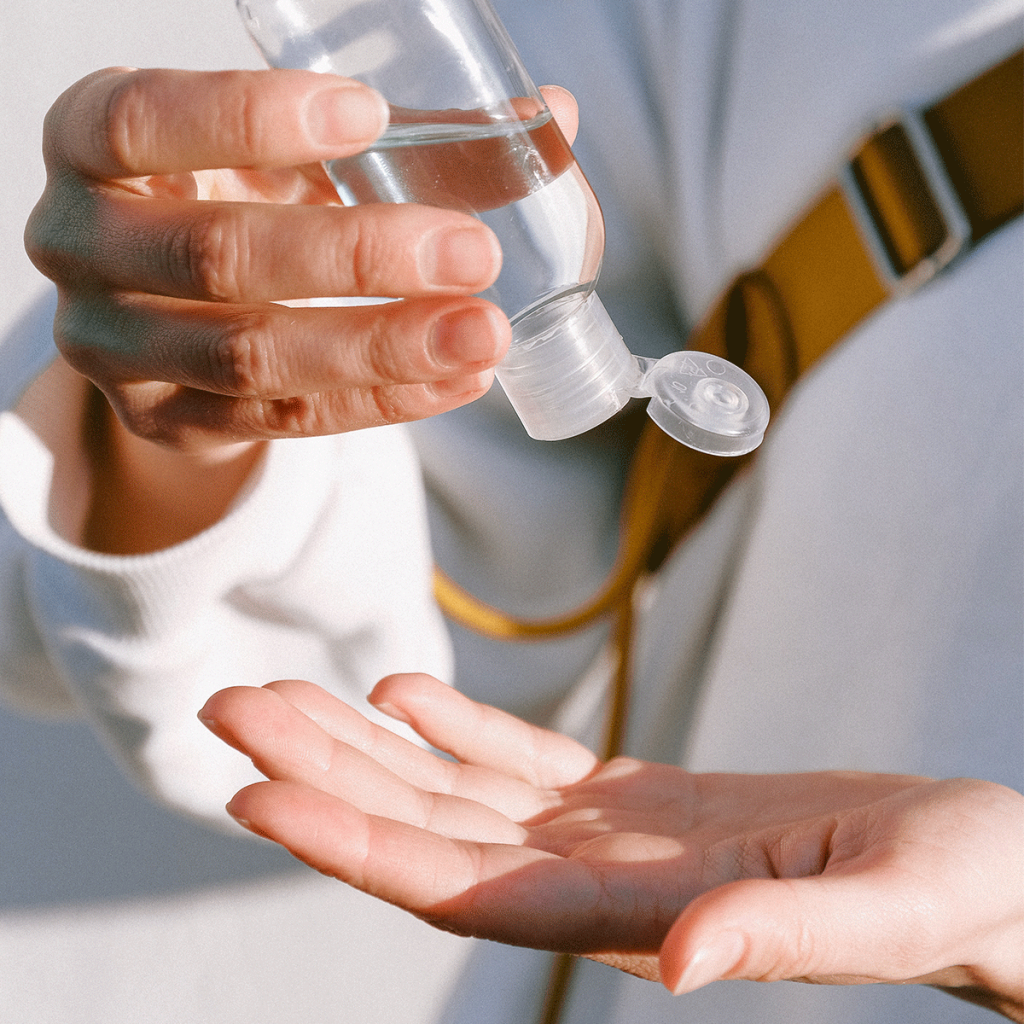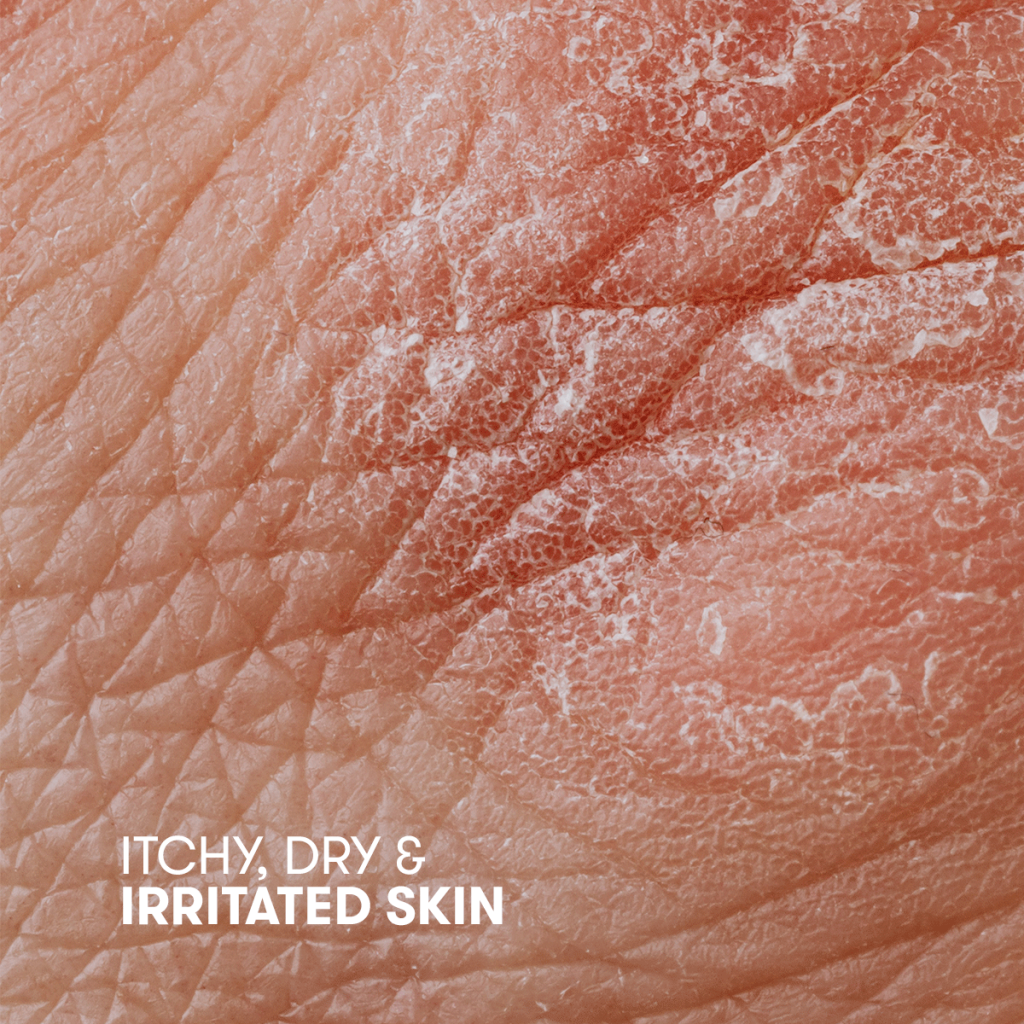‘Prevention is better than cure’ goes a long way when it comes to skincare. If you do not suffer from a skin condition, it is difficult to imagine the discomfort and distress of being uncomfortable in your own skin. Quality of life can be severely impaired by conditions such as psoriasis, eczema, and acne. Irritated and allergic skin that burns, pulls, or itches causes constant unease and sometimes physical embarrassment. The good news is that we can usually find ways to alleviate this discomfort and improve quality of life by taking care of our skin. To do this we need to take a good look at our habits and the products we use.
Aside from the usual problems, we are currently also facing a new issue – maskne (mask acne). This is skin irritation, breakouts, and pimples caused by the use of a face mask, and it is currently a common problem at the moment. The use of a mask can also cause pre-existing conditions such as rosacea or contact dermatitis (allergy to certain materials) to flare up. There are ways to decrease, prevent, and treat maskne. If you are using a cloth mask it is important to wash this daily. Disposable masks should be discarded responsibly after using for the correct number of hours stated by the manufacturer.

Often maskne is often caused by the blocking of pores due to the accumulation of oil, bacteria, and dead cells. The humid environment caused by wearing a mask also increases the risk of acne. Friction with the material can also cause irritation. For these reasons, it is important to keep the skin on the face clean and use a mask that fits well without too much rubbing. The use of a non-perfumed cleanser is recommended twice a day and whenever there is soiling or sweating. It is best to clean the face when the mask is used for a prolonged stretch of time. Select a moisturiser that suits your skin type and apply this daily.
Due to the increased awareness of hand hygiene during the pandemic, we are also washing our hands and applying sanitisers more frequently. As colder weather sets in, the skin on our hands needs extra care. The use of good products cannot be underestimated in maintaining healthy skin, from the kind of soap we choose to the sanitiser and finally the hand cream we apply.

Select a gentle hand wash that is soap-free and perfume-free, considering the frequency at which you will be washing your hands. Do not use very hot water as this will damage the skin. Sanitisers should only be used when soap and water are not available, so as to avoid unnecessary damage to the skin. In order to be effective, sanitisers need to contain at least 60% alcohol. Choose a sanitiser that also contains moisturising agents to counterbalance the drying effect of alcohol. Additionally, we can improve the condition of the skin on our hands by applying a good hand cream often. Keep one on your desk, your bedside table, or in your handbag, so that you can apply often especially when you are washing your hands frequently. Choose a good quality hand cream that will be absorbed quickly, but more importantly that will moisturise and protect your skin, so that you will be encouraged to use it.
Itchy, dry, and irritated skin can also occur on the rest of the body. For some people this is especially true in the colder months. Again, the use of lukewarm water is preferred over hot water. Using gentle non-perfumed products and applying a moisturiser will keep your skin supple and soft, reducing irritation and the signs of ageing.

Do not let your skin keep you from being comfortable and confident! Small steps can go a long way in body satisfaction and there’s no better place to start from than your skin.
Further reading:
How to Avoid Maskne (Mask Acne) Breakouts. Healthline. November 2020. Accessed at: https://www.healthline.com/health/maskne
Zhang, L. et al. The Impact of Routine Skin Care on the Quality of Life. Cosmetics Journal. July 2020. Accessed at: https://doi.org/10.3390/cosmetics7030059

